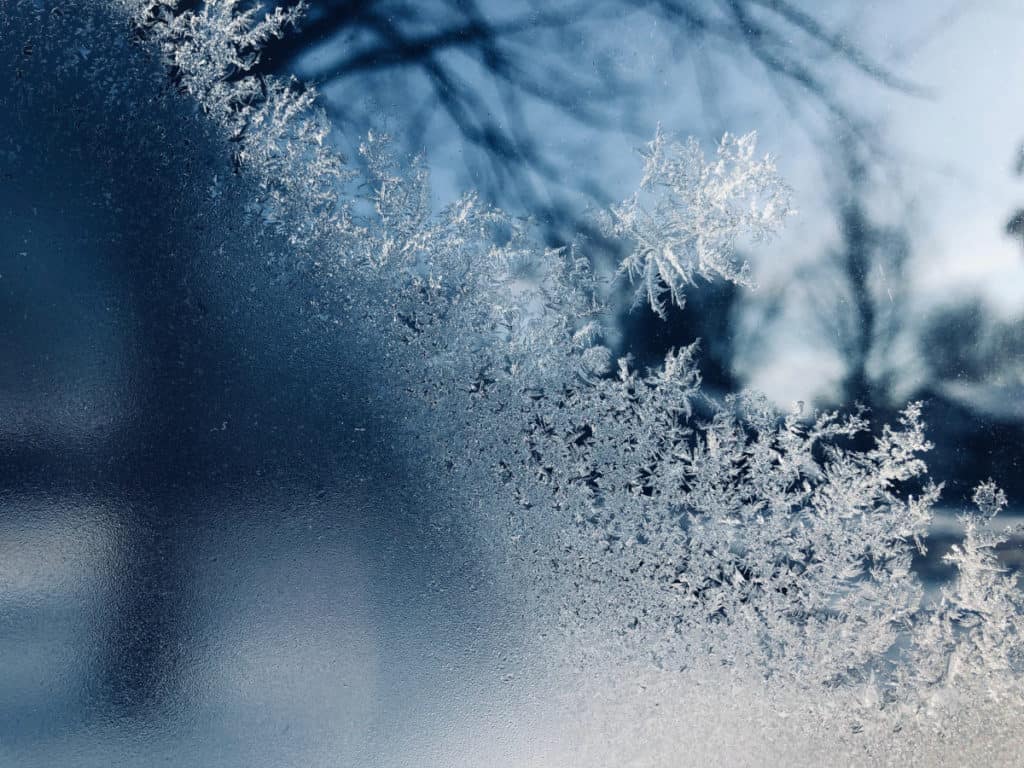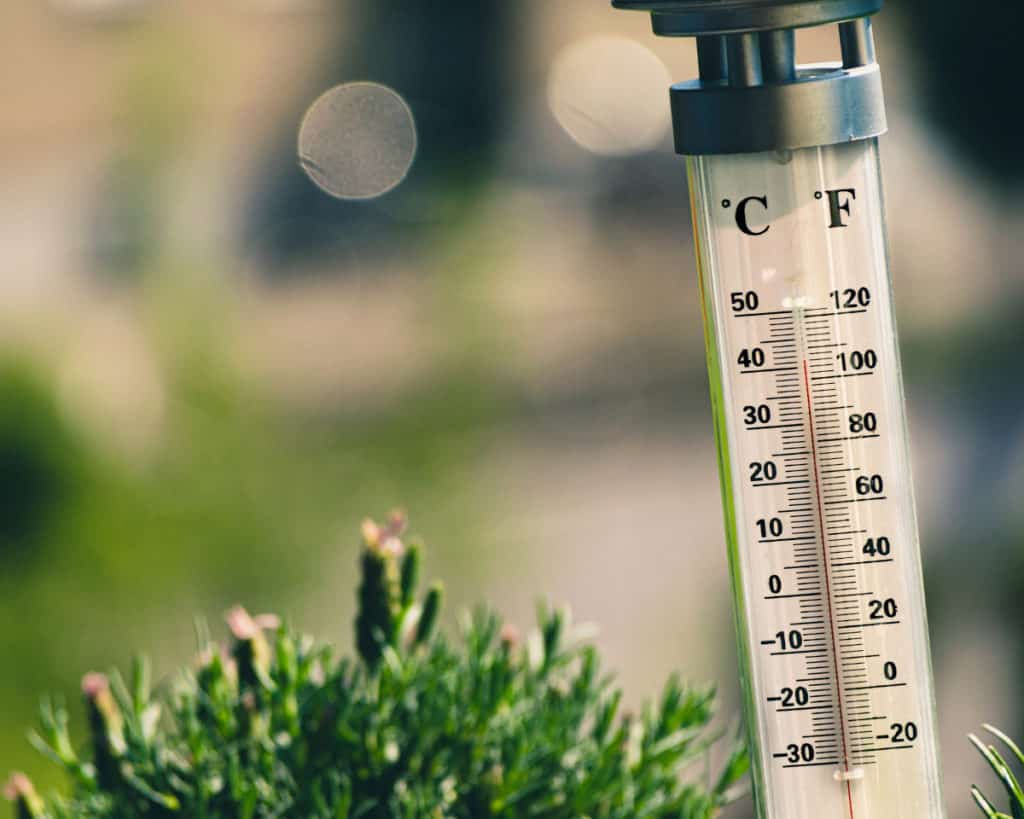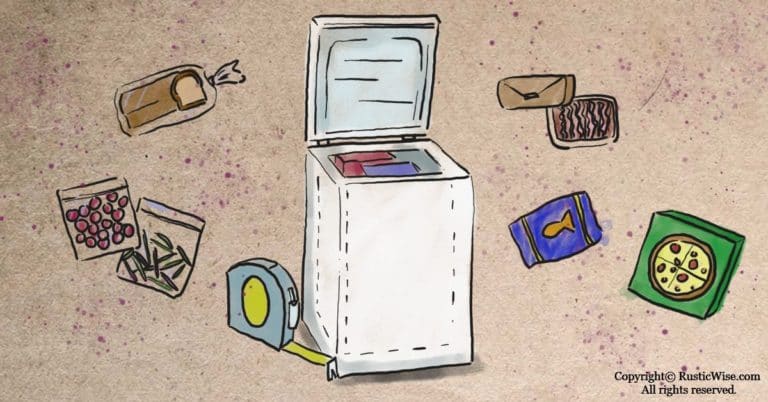Can a Freezer Be Kept in an Unheated Garage? Here’s What You Need To Know
These days, it’s not a bad idea to keep extra food around the house. If you’re looking for an extra freezer to stockpile food, the garage is one of the first places to consider. If you have a heated garage, you should be good to go.
But, can a freezer be kept in an unheated garage? That depends. The garage ambient temperature should be between 0–110 degrees Fahrenheit (-18–43 degrees Celsius).¹ Anything above or below this range of temperature leads to potential performance and food safety issues.
Whether you have an upright freezer or a chest freezer, for the purposes of this article, we’re referring only to standalone freezer units, not fridge/freezer combos.
If you’re wondering, can a freezer be kept in an unheated garage, let’s dive right in!
A quick look at how a freezer works
This hardworking essential appliance works to keep frozen food at an optimal temperature to maintain food safety. Freezers in garages are becoming more commonplace as many people are seeking extra food storage for emergency situations.
In a nutshell, newer models of freezers operate by comparing the internal preset temperature to the surrounding air temperature. So it’s so crucial that temperature fluctuations in an unheated garage are kept to a minimum and don’t get overly hot or cold.
So what happens when your garage gets too cold? You risk it turning off and having a freezer full of defrosted food. When it gets too hot, the freezer works on overdrive, working hard around-the-clock to keep itself cool.¹
If you have an old freezer that’s still in good working condition, consider moving this into the garage instead of a newer model. Older models tend to be beasts and not be as susceptible to temperature fluctuations. Besides, if anything goes wrong, you wouldn’t want to wreck your new freezer.
The downside of running an older model freezer, however, is that it’s less energy efficient.
What temperature should you keep your freezer at?
According to the USDA’s food safety guidelines, the best temperature to keep your freezer is at 0 degrees Fahrenheit (-18 degrees Celsius) or lower.²
At this temperature, food can theoretically keep indefinitely, although food quality may deteriorate.
Note: Some models of refrigerator-freezer combos may not be able to keep frozen foods at this optimal colder temperature in the freezer section.

Can a freezer be kept in an unheated garage? Factors to consider
Extreme temperature fluctuations can have a negative impact on a regular freezer. Here are some factors to look into before hauling a freezer into your garage:
- Humidity: As a general rule, when it comes to food storage, humidity is not your friend. If you live in a humid climate, you may notice rust develop on the coils. A dry climate works best for food storage.
- Temperature: We mentioned above that garage temperatures should stay between 0–110 degrees Fahrenheit (-18–43 degrees Celsius). Think about how hot temperatures get during the summer months, and how cold things get over winter. If temperatures get too hot, the freezer needs to work harder to keep temperatures cool. This leads to more energy usage and higher utility bills. Your freezer also wears down more quickly if it’s always working hard. On the other hand, when you experience cold weather, the freezer is tricked into thinking it has reached the desired temperature and may switch off. You may have a freezer box full of thawed food.
- Insulation: Is your garage insulated? If yes, this helps to reduce temperature fluctuations. So even if your garage is unheated and you live in a mild climate, you might be able to keep a garage freezer. If you have an uninsulated garage, you may need to consider insulating it, or creating a custom insulated space for the freezer.
- Adequate space requirements: Does your garage have enough room to comfortably fit your freezer? For best efficiency, your freezer should have at least 1 inch of clearance from the back wall along with several inches at the top. Adequate air flow ensures your freezer is running at its best. The space should also be dry and not in direct sunlight.
Once you’ve carefully weighed all these factors, you’re the best judge as to whether keeping a freezer is the right choice in your unheated garage.
Can you keep a fridge freezer in an unheated garage?
If you’re considering putting a fridge/freezer combo, it’s not a good idea. The temperature control of the fridge is typically in the fresh food fridge compartment. Fridges generally require more temperature stability.
If the garage temperature dips, say below 40-50 degrees Fahrenheit (4-10 degrees Celsius), the thermostat may malfunction. Your freezer compartment may thaw. Many fridge/freezer combos aren’t designed to work in sub-zero temperatures.
Tips on keeping a freezer in an unheated garage
Sometimes the weather gods are unpredictable. Even if you’ve carefully considered the outside temperature, you may experience an unprecedented heat spell or cold snap.

Here are a few tips on keeping your freezer running efficiently:
- Too hot? Keep those cooling coils cool by setting up a fan. Either a standalone fan or ceiling fan should help a bit—just ensure the back and sides of the freezer are getting air from the fan.
- Too cold? You may need to warm up the air around your freezer’s thermostat when the garage temperature gets too cold. Your freezer gets confused and may turn itself off when temperatures drop. To prevent this, try setting up a heating coil around the thermostat. Check to see if your freezer’s manufacturer makes a heating coil.
- Too humid? A good dehumidifier can help dry things off in your garage.
Signs your unheated garage is too hot or cold for your freezer
- Excess frost: When ambient garage temperature is too low, your freezer may develop frost on the exterior and the interior. The regular defrost settings don’t work. Over time, this damages the freezer’s layer of insulation, making it less able to regulate its own temperature.
- Thawed food: If you constantly find your food in various stages of defrosting, it’s a sign your garage temperature is too cold.
- Compressor problems: If you find the freezer compressor making loud noises, clicking sounds, or starts on and off, you’ll need to get this looked at. While there are a number of reasons why a compressor may be malfunctioning, it’s worth noting that freezer compressors work harder to keep cool when ambient garage temperatures rise. Often, freezers kept in climates that are too hot have worn out compressors that require repair or replacement.
What’s the difference between a garage ready freezer vs. a regular freezer?
The difference between a garage ready freezer vs. a regular freezer is that the former is designed to withstand more extreme temperature, while the latter requires some temperature stability for optimal functioning.
Garage ready freezer models are designed to withstand ‘outdoor’ conditions in your garage such as temperature changes, humidity or other factors. They often have thicker insulation, special compressors, and sometimes triple-sealed gaskets to maintain ideal freezer temperature.³
Not all are created equal, however. Do your research as some are designed to operate more efficiently in colder temperatures, while others are better for hotter climates.
Related questions
Can you use an upright freezer for an unheated garage?
Yes, a regular upright freezer can be kept in an uninsulated or unheated garage as long as you don’t experience extreme temperature changes. You can also find garage ready upright freezers that are designed to withstand temperature changes.
Can you put a deep freezer outside?
If by outside, you mean on a patio or porch, no, it’s not a good idea to store a deep freezer there. This is because there’s greater risk of prolonged sun exposure (which could damage the appliance and wreak havoc on the inside temperature). Keeping an appliance out in the open where it’s exposed to moisture could also lead to humidity issues, or rust.
Is it okay to have freezers for outbuildings?
Whether you have an outdoor shed, barn, or detached office unit, you can keep a freezer there as long as conditions are right. This means temperatures should stay between 0 and 110 degrees Fahrenheit (-18–43 degrees Celsius). The area should be dry and not exposed to direct sunlight.
👉 If you like this post, see our Timeless Food Storage and Preservation Guide.
Would you like more timeless tips via email?
Fun tips to help you live an independent, self-sustaining lifestyle. Opt-out at any time.


References
- Farrell, Mary H.J. (17 April 2020). “Should You Put a Freezer in the Garage?“, Consumer Reports. Accessed April 2023.
- U.S. Department of Agriculture (USDA), What is the right temperature for the freezer?,
https://ask.usda.gov/s/article/What-is-the-right-temperature-for-the-freezer. Accessed April 2023. - Whirlpool, What does “garage ready” freezer mean?, https://www.whirlpool.com/blog/kitchen/what-is-a-garage-ready-freezer.html. Accessed April 2023.

Author: Josh Tesolin
Josh is co-founder of RusticWise. When he’s not tinkering in the garden, or fixing something around the house, you can find him working on a vast array of random side projects.









